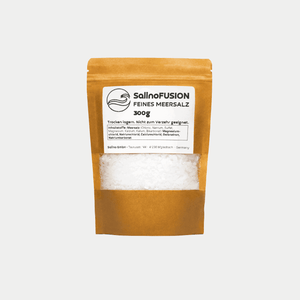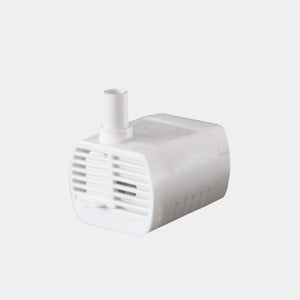When skin becomes a mirror of the soul
It often begins quietly. A feeling of tension after a shower, an itch in the crook of your elbow, a fine wrinkle that won't smooth out. Our skin speaks – and it speaks in a language that sometimes overwhelms us. Because it reveals what we'd rather hide: stress, lack of sleep, allergies, hormonal imbalances, the traces of time.
For many, the skin is more than just an external covering. It's both a stage and a protective shield. And when it's out of balance, it affects us deeply – emotionally and physically. Skin problems like atopic dermatitis, acne, rosacea, or scaly eczema aren't niche phenomena. They're ubiquitous. And with them comes a growing desire for skincare that does more than just soothe superficially.
But what really helps? Between drugstore miracle cures, medicinal ointments, nutritional tips, and natural healing methods, it's easy to lose track. In this article, we explore how to alleviate skin problems in a holistic, natural way—with a scientific perspective, human depth, and an open ear for tried-and-tested home remedies.
We present 7 ways to bring your skin back into balance. They include ancient wisdom, new research, and a surprising natural helper that many overlook: salty air.
1. The origin often lies within: understand skin problems instead of covering them up
 Anyone with skin problems knows the reflex: conceal, cover, soothe. But what appears on the surface is often only a symptom of deeper processes. Atopic dermatitis, for example, is not simply dry skin – it is a chronic inflammatory disease with a genetic component in which the immune system and skin barrier become disrupted. Acne, rosacea, and perioral dermatitis are similarly complex.
Anyone with skin problems knows the reflex: conceal, cover, soothe. But what appears on the surface is often only a symptom of deeper processes. Atopic dermatitis, for example, is not simply dry skin – it is a chronic inflammatory disease with a genetic component in which the immune system and skin barrier become disrupted. Acne, rosacea, and perioral dermatitis are similarly complex.
The skin is a mirror of the body—and the soul. Hormonal fluctuations, stress, lack of sleep, or dysregulated intestinal flora can leave visible traces. Sometimes a look at particularly stressful periods or a change in diet is enough to understand why the skin suddenly rebels.
So instead of just treating the external factors, it's worth looking for internal triggers. Those who are regularly prone to rashes or eczema should also consider diet, sleep habits, psychological stress, and environmental factors. This requires a shift in perspective: away from purely treating symptoms and toward investigating the root causes. This path takes time, but it's worth it.
2. Gentle helpers instead of chemicals: The power of natural care products
 Hardly any other industry promises as much as the cosmetics industry. "Anti-aging miracle," "pore reducer," "instant smoothing"—there's hardly an advertising slogan that doesn't suggest that beautiful skin is just a purchase away. But for many sensitive or diseased skin types, the opposite is true: too much, too aggressive, too stressful.
Hardly any other industry promises as much as the cosmetics industry. "Anti-aging miracle," "pore reducer," "instant smoothing"—there's hardly an advertising slogan that doesn't suggest that beautiful skin is just a purchase away. But for many sensitive or diseased skin types, the opposite is true: too much, too aggressive, too stressful.
Natural care products often offer a soothing alternative. Plant oils such as jojoba, hemp, evening primrose, or sea buckthorn not only nourish, they also strengthen the skin barrier and have anti-inflammatory properties. Chamomile soothes, calendula regenerates, and shea butter protects – without over-conditioning the skin or making it dependent on artificial ingredients.
Especially for atopic dermatitis or extremely dry skin, less can often be more: no fragrances, no silicones, no preservatives. Instead, simple formulas with a few, well-tolerated ingredients are recommended—ideally in consultation with a dermatologist or naturopath.
Another benefit of natural skincare: It often has an emotional component. The scent of essential oils, the gentle touch of the skin while applying cream, the feeling of real contact – all of this affects not only the skin but also the nervous system.
3. Sleep well – why regeneration is more important than any cream
 It sounds too simple to be true: Sleep well. But in fact, good sleep is one of the most effective and yet underrated skincare routines. Complex regeneration processes take place at night. Cell division is most active in the late hours of the night, inflammation can subside, and moisture retention is improved.
It sounds too simple to be true: Sleep well. But in fact, good sleep is one of the most effective and yet underrated skincare routines. Complex regeneration processes take place at night. Cell division is most active in the late hours of the night, inflammation can subside, and moisture retention is improved.
Those who don't get enough sleep or have frequently interrupted sleep risk more than just dark circles under their eyes. Their skin becomes more susceptible to external irritants, minor inflammations heal more slowly, and wrinkles may deepen more quickly. A permanently disturbed sleep rhythm can also worsen the symptoms of chronic skin conditions such as atopic dermatitis or psoriasis.
But good sleep is no longer a given these days. Light pollution, screen time until shortly before falling asleep, stress – all of these things act as interference signals to the delicate system of our sleep. That's why conscious sleep hygiene can work wonders: regular bedtimes, dark and cool bedrooms, no cell phones in bed. And sometimes a little bedtime ritual helps – a calming tea, quiet airing, soft music.
4. Skin breathes: How indoor climate and air quality influence your skin
 Our skin is exposed not only to what we apply to it, but also to its surroundings. Dry heating air, fine dust pollution, low humidity, or irritants in indoor air can exacerbate or even cause skin problems. This is especially noticeable in the winter months: The skin feels tight, itchy, and cracked.
Our skin is exposed not only to what we apply to it, but also to its surroundings. Dry heating air, fine dust pollution, low humidity, or irritants in indoor air can exacerbate or even cause skin problems. This is especially noticeable in the winter months: The skin feels tight, itchy, and cracked.
It's important to remember that it's not just allergy sufferers or people with sensitive skin who benefit from cleaner, more humid air. Good air quality can also have a positive effect on healthy skin – it helps stabilize the natural skin barrier and reduces irritation from environmental pollutants.
Particularly exciting: More and more studies indicate that salty air (like that found in the sea) has anti-inflammatory effects on the skin and respiratory tract. It can help gently cleanse the skin, soothe irritation, and support the natural skin flora. What was once only possible on the North Sea can now also be created at home – but more on that in the last section.
5. Food for the skin: Why the path to healthy skin often leads through the gut
 "You are what you eat" – a cliché? Perhaps. And yet research is increasingly showing: there is a close connection between gut health and skin. The so-called "gut-skin microbiome" influences not only digestion and the immune system, but also the development of inflammation on the skin.
"You are what you eat" – a cliché? Perhaps. And yet research is increasingly showing: there is a close connection between gut health and skin. The so-called "gut-skin microbiome" influences not only digestion and the immune system, but also the development of inflammation on the skin.
For example, many people with atopic dermatitis, acne, or rosacea exhibit noticeable imbalances in their intestinal flora. Low diversity, an excess of inflammatory bacteria, or a permeable intestinal mucosa (leaky gut) – all of these can affect the skin via the immune system .
A holistic approach is worthwhile here. Instead of selectively avoiding individual foods, focus on variety and balance. A Mediterranean diet is generally particularly well-tolerated: plenty of vegetables, healthy fats (e.g., olive oil, nuts), fermented foods like sauerkraut or yogurt, and little sugar. Anti-inflammatory substances such as omega-3 fatty acids, zinc, and certain polyphenols (e.g., in turmeric or green tea) can also be helpful.
Of course, no plate of broccoli can replace medical treatment – but it can be a piece of the puzzle on the path to better skin health.
6. When the body speaks: Skin problems as an expression of stress
 Hardly anything affects our bodies as strongly as stress. And hardly any organ reacts as sensitively to it as the skin. It is part of our nervous system – embryologically and functionally. It's no wonder, then, that emotional stress often first manifests itself in skin reactions: a rash before an exam, eczema in the midst of relationship stress, an acute flare-up despite "actually good care."
Hardly anything affects our bodies as strongly as stress. And hardly any organ reacts as sensitively to it as the skin. It is part of our nervous system – embryologically and functionally. It's no wonder, then, that emotional stress often first manifests itself in skin reactions: a rash before an exam, eczema in the midst of relationship stress, an acute flare-up despite "actually good care."
Stress activates the sympathetic nervous system, alters the immune system, releases inflammatory messengers—and simultaneously suppresses the skin's regenerative processes. Especially in chronic skin diseases, this can lead to a vicious cycle: The skin deteriorates due to stress, which in turn is exacerbated by the visible symptoms.
What helps? The answer isn't trivial—but it begins with mindfulness. Meditation, breathing exercises, regular exercise, creative activities, or even small daily rituals (a conscious skincare routine, a digital break) can help reduce stress levels. Your skin will thank you. And often, it's precisely these quiet, inner steps that have more of a long-term impact than any new cream.
7. Salt on the skin, peace in the depths: The healing effect of salty air
 Anyone who has ever breathed deeply at the North Sea knows it: that feeling of spaciousness, purity, and tranquility. The skin feels less taut, breathing becomes deeper, and the entire body seems to relax. What seems like a subjective sensation actually has a scientifically measurable basis: salty air.
Anyone who has ever breathed deeply at the North Sea knows it: that feeling of spaciousness, purity, and tranquility. The skin feels less taut, breathing becomes deeper, and the entire body seems to relax. What seems like a subjective sensation actually has a scientifically measurable basis: salty air.
Salt air—whether from natural seas, graduation towers, or salt chambers—contains fine aerosols of sodium chloride, magnesium, iodine, and other minerals. These can have anti-inflammatory, antibacterial, and expectorant effects—not only on the respiratory tract, but also on the skin. Many sufferers of atopic dermatitis, psoriasis, or acne report noticeable relief after stays at the seaside or in salt cave treatments.
But what do you do if your next vacation is far away? Or if you live in the middle of a city, far from the coast and spa resorts?
This is where modern technology comes in. There are now ways to make saline air usable in a compact, controlled form at home – for example, with the help of mini graduation towers or salt air devices. These devices create a saline ambient air that can be inhaled regularly and passively – without much effort, but with the feeling of doing something good for yourself.
Conclusion: Skin care is self-care – inside and out
There's no one-size-fits-all solution at the end of this journey. Skin problems are individual – just like we are. Yet there are patterns, connections, and proven approaches. Anyone who wants to understand their skin must listen: to their body, the environment, and their own needs.
Whether it's nutrition, sleep, skincare, air quality, or stress – everything is connected. It's not about being perfect. It's about becoming more mindful. Gentler. More holistic. And pursuing your own path to skin health with patience and curiosity.
And if you want to try salty air for yourself…
...there are now devices that replicate the beneficial effects of graduation towers on a small scale – such as mini-saltworks like the SalinoVatis model. It operates silently, without a filter, and with a particularly high salt content. For many sufferers, it provides a silent support in their daily lives – not a substitute for medical treatment, but a complementary stimulus from nature.
A notice:
This article is not a substitute for medical diagnosis or treatment. If you have persistent or serious skin problems, you should always seek medical advice. The methods and tips mentioned can be helpful, but they are not a substitute for professional medical or therapeutic care.



